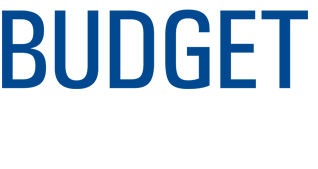TUESDAY’S provincial budget reflects a social agenda with meaningful investments in both housing attainability and childcare – two areas of deep interest to the BC Chamber of Commerce network – but it leaves the business community to pick up a $1.92 billion tab on MSP by the fiscal year 2020.
The BC Chamber’s 2017-18 Collective Perspective survey flagged “affordability of housing” as the top issue “hurting” businesses in BC. Tuesday’s announcements intended to “stabilize [the] market and curb demand” with investments of more than $6 billion over 10 years are a welcome move that will help small business owners address another key challenge in BC’s tight labour market: recruiting and retaining staff.
“Less encouraging,” says Val Litwin, President and CEO of the BC Chamber, “is the news that businesses will be footing the bill to the tune of almost $2 billion by 2020-21 to cover the full phase-out of MSP premiums.” Added Litwin, “In fact, this new burden, shifted entirely onto the shoulders of business owners, flies in the face of an innovative economy – a phrase that featured prominently in every Ministers’ mandate letter in July, but very little in today’s speech. This new tax will have a negative effect on growth and investment.”
When taken in conjunction with the loss of revenue neutrality (and increase) of the Carbon Tax, and increases to minimum wage and the corporate tax rate, businesses of all sizes – from dry cleaners on main street to family logging companies in the interior – are facing the cumulative effect of crippling tax increases that will challenge their ability to invest and grow.
“Our members like to see balanced budgets,” said Litwin, “especially with capital investments in infrastructure, education, trade, and housing that support many businesses in the province through direct and indirect job creation,” said Litwin, “But this budget looks like it’s being balanced on the back of business through accumulating tax increases.”
“Our economy grows when businesses are supported, taxes remain competitive with global competitors such as the US, and businesses are optimistic about hiring and investing,” said Litwin. “Given this government’s emphasis on innovation and the ‘emerging economy’, we expected to see a more holistic plan put in place for the reduction of red tape that has always proven to spur growth and, for example, more incentives to drive innovation and early adoption of new technologies.”
Business Highlights from Budget 2018:
- $15.8 billion for critical infrastructure including schools, post-secondary institutions, health facilities, affordable housing, student housing, and transportation
- Over $1 billion to create a universal child care plan
- $29 million over three years to support the expansion of the agricultural sector
- Some of the revenue collected from the Carbon Tax will be focused on support for emissions intense industry to transition to a low-carbon economy
- Rural Dividend funding committed through to 2021 at $25 million a year













